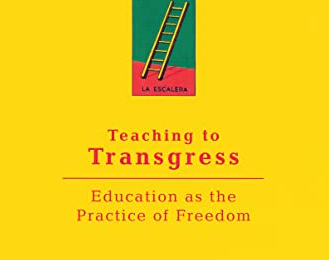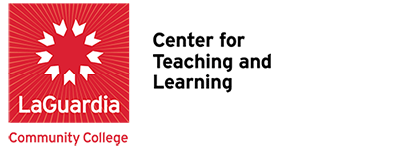
Discovering bell hooks*
The CTL Coordinators’ Reading Group recently finished discussing bell hooks’s Teaching to Transgress: Education as the Practice of Freedom (1994), in which she examines the oppressive dynamics of racism, sexism, and classism in our society, especially at the academic level. Examples of these issues, drawn from her life as a Black student and college professor, begin with recollections of the care and pride expressed by teachers in the segregated classrooms of her rural Southern community and continue on to the devaluation and marginality she encountered not only in the integrated schools in the late 1960’s, but throughout her life as Black student, educator, and feminist.
Despite, or maybe because of these experiences, I believe that by “teaching to transgress,” hooks means for us to break through a patriarchal-capitalist-supremacist cycle that has shaped ways of thinking for over a century, to break away from the idea that there is one “right” way of teaching and learning, to include ways of thinking from other cultures and backgrounds. Most of all, students must use their education, hooks believed, as a “practice of freedom.” For her, the classroom was a place to generate choices; it was not where students are conditioned to be parts of a machine.
Throughout Teaching to Transgress, bell hooks often cites Paolo Freire, author of Pedagogy of the Oppressed, as a cherished mentor, who, unlike her professional peers, welcomed her critical mind, especially when it was trained on him. What I find truly fascinating about bell hooks is her ability to take a situation—like Freire’s sexism— and extract good and valuable insights from its limitations.
Teaching to Transgress: Education as the Practice of Freedom is a great introduction to bell hooks. To my surprise and delight, one of this semester’s assigned readings in my course at Hunter College, Representations of Race and Ethnicity in U.S. Media, is hooks’s “The Oppositional Gaze: Black Female Spectators.” I am excited by the chance to discuss this essay with my classmates, and to connect it to our readings in the CTL Coordinators’ Reading seminar. Next up: AI, cyberspace, and construction of race and gender!
*Please note: The writers of this blog entry recognize as correct the lowercased lettering of bell hooks’s name. However, auto-correct does not permit changes to its imposed format. We apologize.



